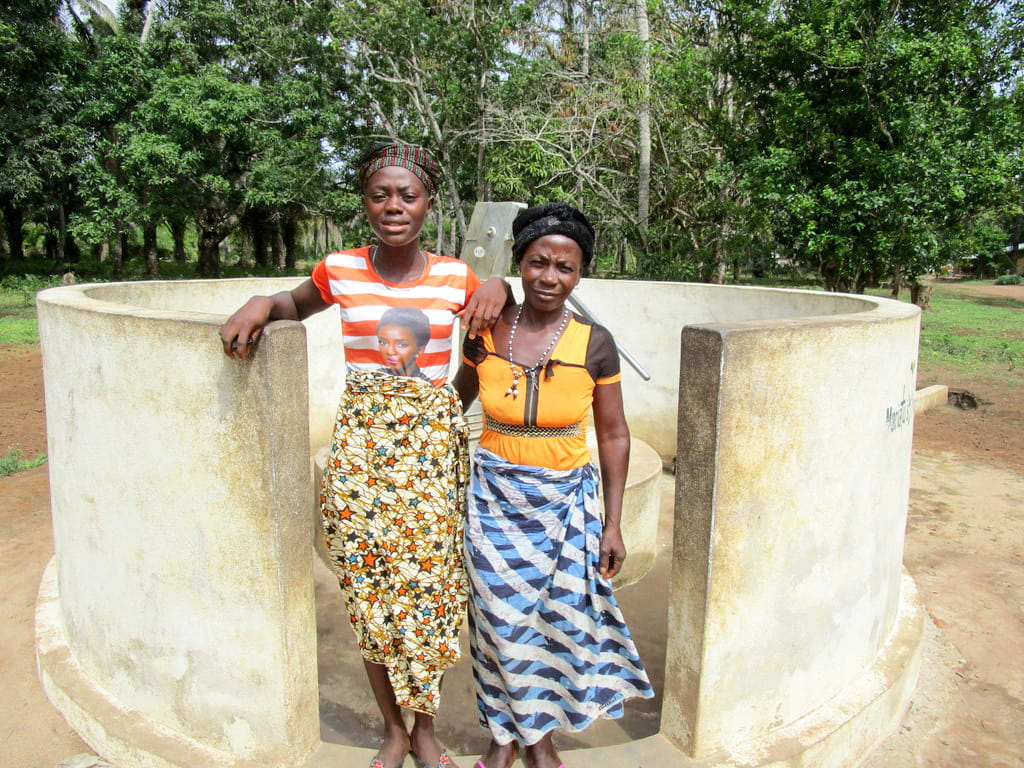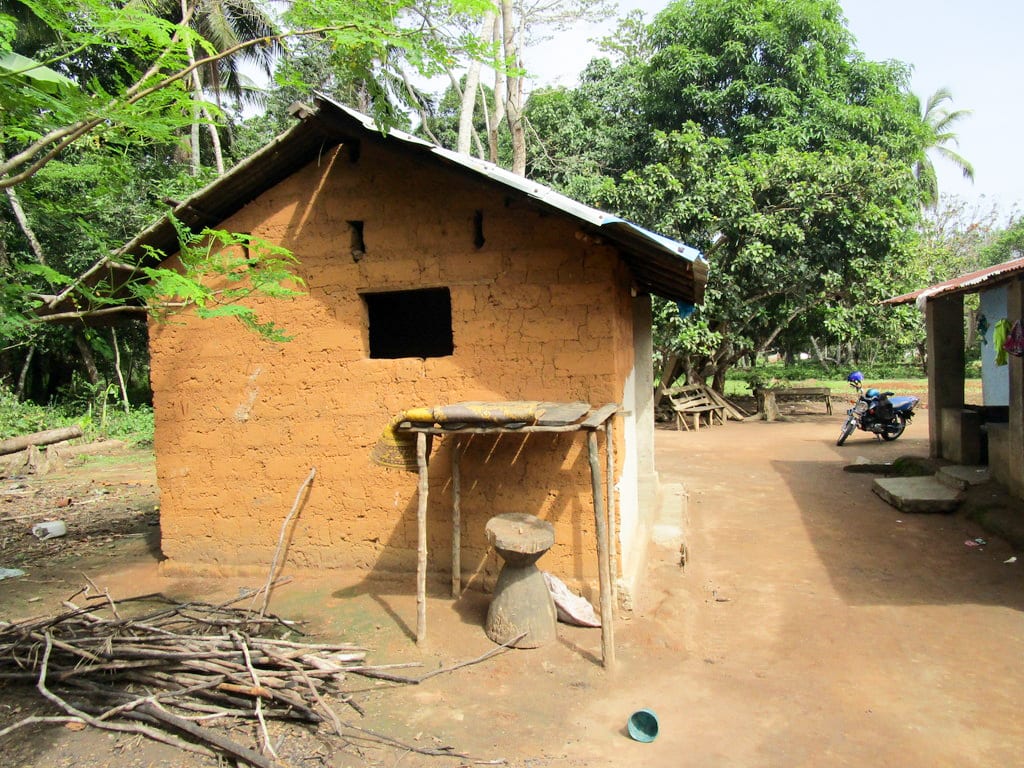Welcome to the Community
One of the oldest villages in the Kaffu Bullom Chiefdom, Ponka Village means "something small" in the language of the Bullomites. This is a predominately Muslim community with an average household of seven people. People get up early for prayers, with the men practicing the custom of washing their bodies at the stream beforehand. This practice forces some of these men to wake up by 4 AM to get washed, after which he will not talk to anyone until he is inside the mosque. After prayers, men walk around town and visit every house to see how each family fared through the night.
The children and women are up around the same time, but start with chores before going to the farm. The women in this village are the income earners. The men are only responsible for planting and clearing the field or swamp, leaving everything else to be done by the women.
Women in this village are known for two things: they are either pregnant or nursing young. There is a woman in this village who has twelve children! The rich history of the village and the endurance of their women has spread the rule of the paramount chief to other parts of the chiefdom. Women normally cannot claim any property left by their parents, but in this specific tribe, women have just as much right as the men.
Water Situation
There is a protected hand-dug well with a hand-pump, but it only provides water for part of the year. Since it is unreliable, community members have resorted to using two other sources.
Those living in Ponka Village rely on water from a swamp. There is also an open well at the end of the village, but that requires extra heavy lifting.
The swamp is a 60-minute walk from the center of the village. When fetching water from the swamp, people will wear shorts to wade in and dunk their containers under the surface. Many people in this village swear that the taste of the swamp's water is much better than that from the open hand-dug well. But water drawn for drinking is the same water where clothes are laundered; just a few feet away from those fetching drinking water are bathers.
At the well, a large bucket is tied to the end of a rope. If you cannot lift twenty pounds up from the bottom of a 30-foot deep hole in the ground, then don't bother.
Because drinking water in this community come from these two sources, waterborne diseases are common.
Sanitation Situation
Over 75% of homes have pit latrines, but they are in very poor condition. Many don't have doors or roofs. Most people here go to the woods to relieve themselves.
There are no places to wash hands, and not many families have helpful tools like dish racks or clotheslines. Animals roam free, and are another reason disease spread so easily here.
Plans: Sanitation and Hygiene Training
Training will last for three hours a day for three days. The facilitators have already assessed sanitation here and decided that hand-washing and using the latrine will be strongly emphasized. During our hand-washing sessions, community members will be taught how to make their own hand-washing station out of a plastic jerrycan, sticks, and rope. These are the best solution for rural areas, since all the materials are all easily replaceable. Each family will need to make one of these and show they can use them before we begin the construction phase. We also require that every family have their own latrine.
Training will also result in the formation of a water user committee that will take responsibility for their new well. The members will manage and maintain the pump to the best of their ability, and will call our office if they need a mechanic to make a repair.
Plans: Well Rehabilitation
The well marked for this overhaul needs major work to supply adequate, clean water to the community year round. The pump will be removed, and a man will be lowered inside with a hand auger. This hand auger will allow the team to drill several meters deeper to hit a new water table, which will ensure the well supplies water throughout the drier seasons. As the team drills, casing will be installed, transforming this hand-dug well into a pseudo-borehole. PVC piping will connect this lower system directly to the pump, a construction that we know will also improve the quality of water.
Once this plan is implemented, everyone within the community will have access to safe drinking water in both quality and quantity, even through the dry months.

 Protected Dug Well
Protected Dug Well


























